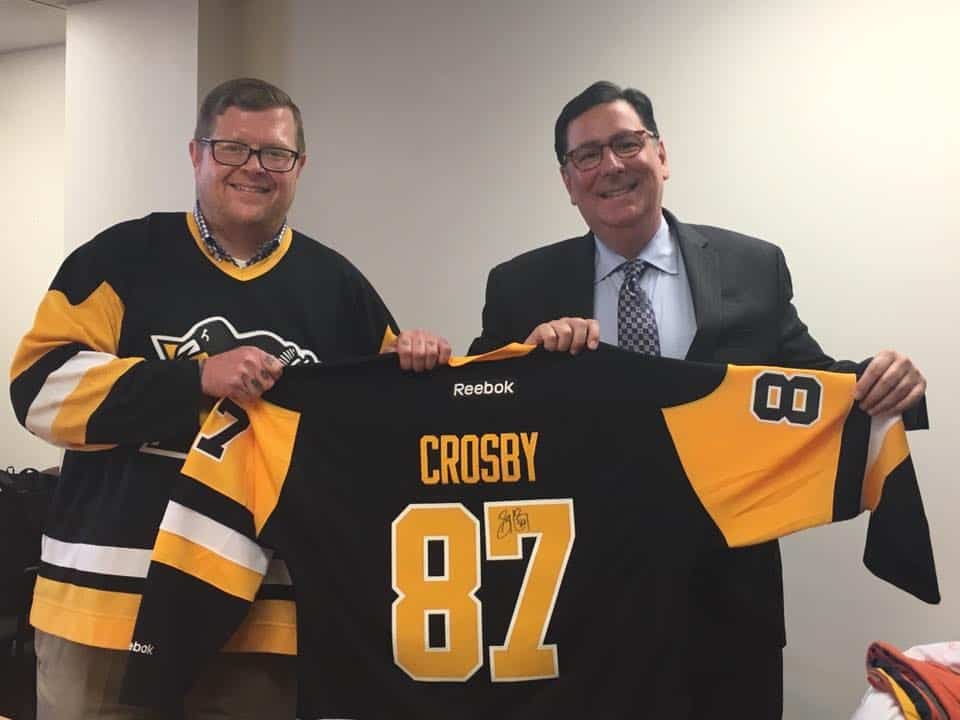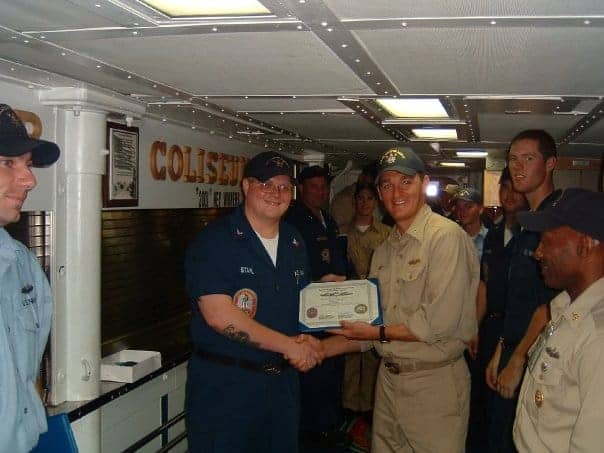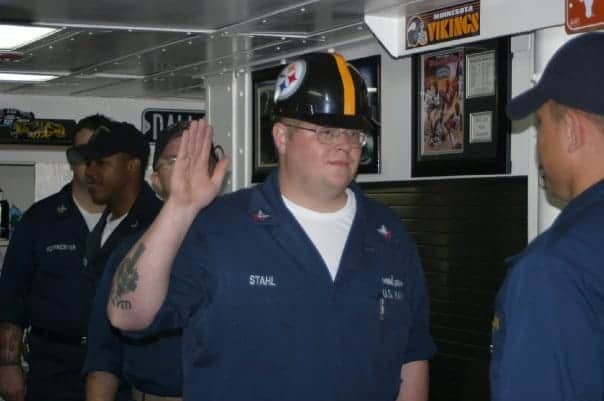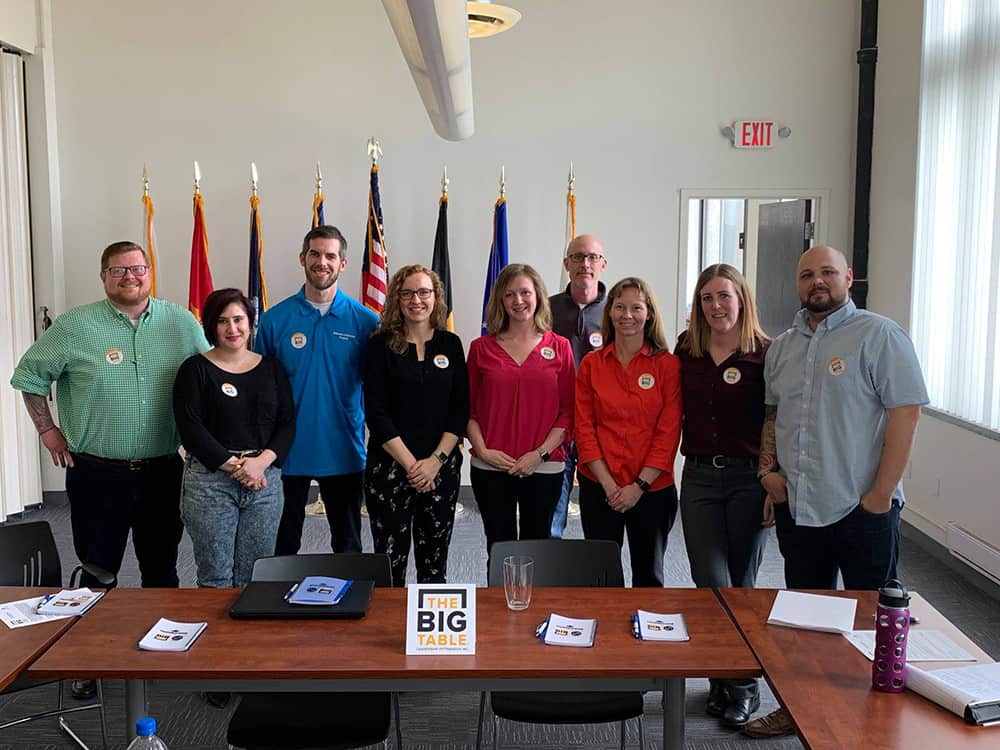

For many veterans, returning home from service isn't the end to their struggles, but the beginning of new ones. In Pennsylvania alone, the Housing Assistance Council estimates that over 900 veterans are currently homeless, with over 139,000 veterans living in homes "with one or more major problems of quality, crowding, or cost." About 7 percent of PA veterans are living in poverty, and 114,000 of them have a service-connected disability. Many veterans facing these problems aren't sure of where to turn for help, and fighting these battles alone can lead to devastating results.
As the CEO of the Veterans Leadership Program of Western Pennsylvania (VLPWPA), Ben Stahl is deeply invested in the way we treat our veterans when they return home. A Navy veteran who joined the military after 9/11, Stahl decided that he wanted to continue to work with veterans after answering what he describes as "his generation's call to arms." Now, he spends his time focusing on the aftermath of service, developing ways for veterans to maintain or regain financial, physical, and mental wellness upon returning to civilian life.

Much of the VLPWPA's work centers around measures to prevent common problems that veterans face after service, such as homelessness, joblessness, addiction, and mental and physical health problems. Stahl believes that this focus on preventative care makes the VLP stand out among similar programs. "Other organizations focus on the wound instead of what causes the wound," he says. "We don't want a quick fix that leads to the vets being homeless again six or seven months later. For example, if we can get them to work out and take care of themselves, they can start to feel more confident. Then maybe that leads to them drinking less and losing weight. We focus on the person, not the symptom."

The VLPWPA provides numerous services to veterans in need, including housing assistance and a workforce development program. Stahl, however, places particular emphasis on Task Force Phoenix: a no-cost year-long program held locally that aims to "improve mental and physical health, reduce substance abuse, and promote a higher quality of living among veterans." Stahl highlights the mental impact of the program as a much-needed resource that many veterans don't receive elsewhere. "There's a lack of awareness for mental wellness everywhere, and that carries over into the veteran community," he says. "Veterans are less apt to open up, and there's a lack of access to mental health resources in a lot of veteran centers."
The results that the VLPWPA provides prove that the assistance they provide really does change lives - not just for veterans, but also for their loved ones. Stahl recounts that one veteran read a letter his wife wrote saying how different he was just one week into the program. "[The wife] was so happy because her husband was better with his kids and family. And that's just one week in. Imagine how much of an impact this program can have over an even longer period of time," he says.

In order to help our veterans' ever-evolving needs, Stahl wants the public to understand that just because a veteran doesn't appear to be in crisis doesn't mean that they don't need help. "A lot of people think of homeless veterans as the guy under a bridge with a camo jacket," he says. "Nowadays, that's not the case. Veteran homelessness can mean they don't have a permanent residence - they're living in their car, maybe couchsurfing from one friend's home to the next. A lot more of them are female now, too. We're in a new age of veteran homelessness."
You can contribute directly to the VLPWPA's cause by donating to the organization, but even if money is tight, there are plenty of ways to help local veterans in your area. "Hire a vet if you can. Provide housing if you can," recommends Stahl. "Sometimes, though, the best thing anyone can do is lend an ear and be a friend."
"*" indicates required fields